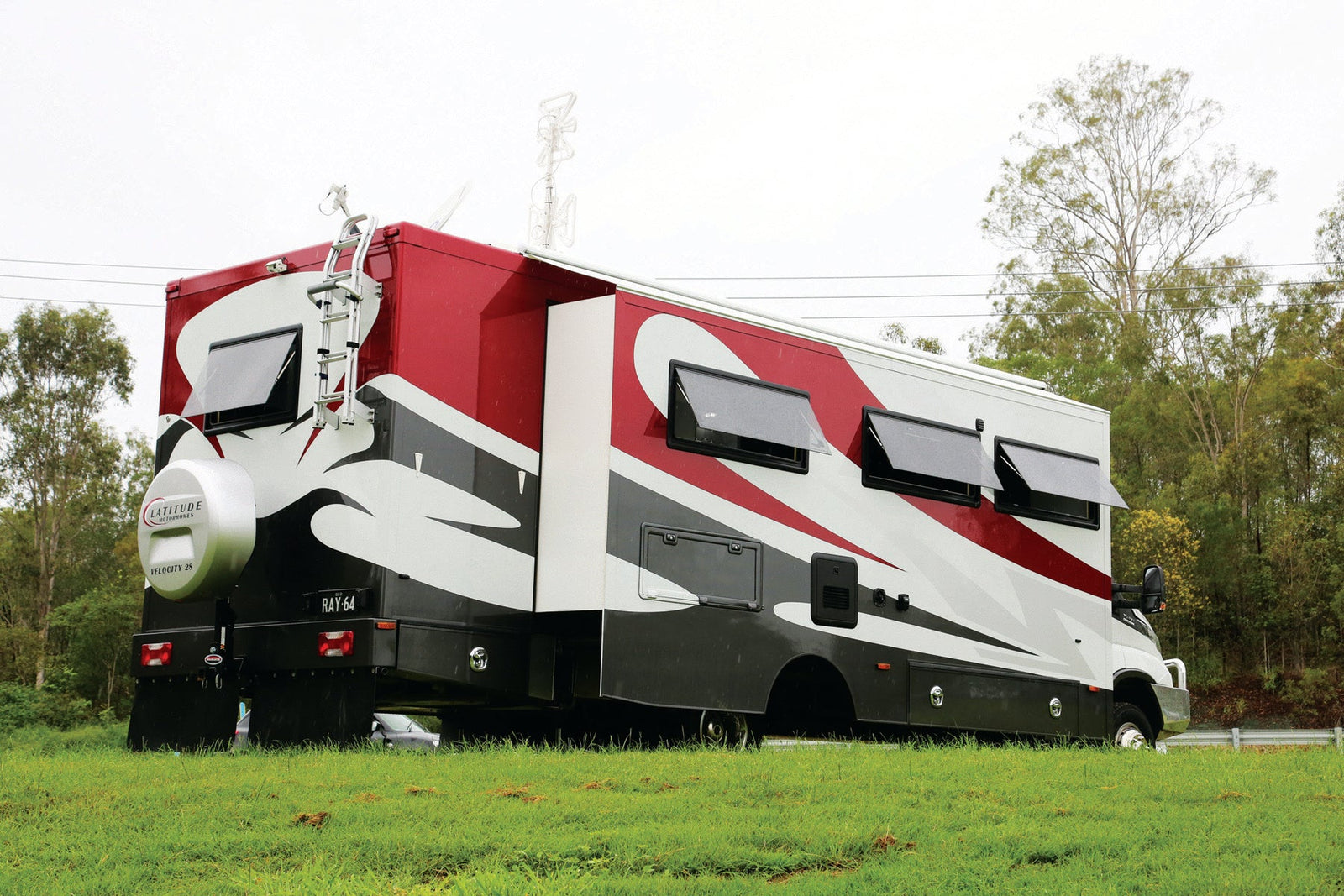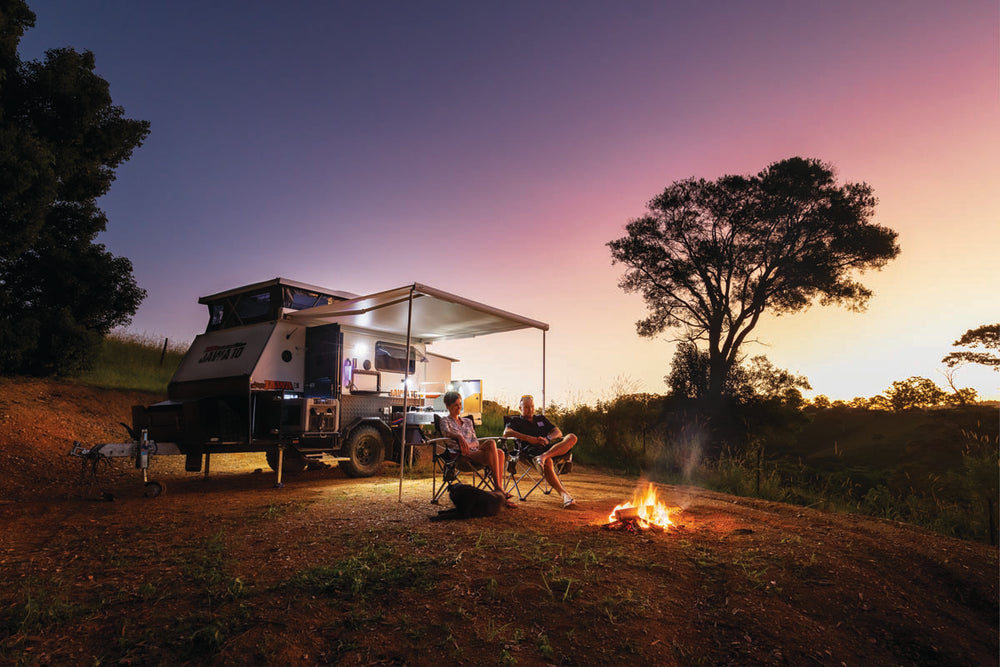RV Storage

It’s about the time of year in the Recreational Vehicle (RV) world when normally a couple of things are happening. Totally unorganised, unlike say an RV show or rally, they are still regular items in the RV calendar year.
The first is the Great Migration North, where RVers, mostly from the southern states, prepare to head to the northern parts of Western Australia, Northern Territory and Queensland for a few months in the warmer climes.
Quite differently, the other is the large number of RV travellers who prepare to put their RVs into storage for the winter period after enjoying the last of the pleasant Autumn days.
The first event, however, has been forced to a halt due to COVID-19. Some state borders have closed, many a tourist area has been declared off limits to visitors and everyone has been advised to stay at home, which means both groups are now looking to store their RVs for an extended period. At this point in time, I have no idea how long the ‘extended period’ will last — neither does anyone else for that matter — but it’s certainly measured in multiple months.
Consequently this is a good time to consider where and how to store your RV — there are also a number of cleaning and maintenance items that can be attended to and even some that can be done in preparation for when we are allowed out in the big wide world again.
FIND A GOOD STORAGE SITE
This depends on any number of factors, but the ideal storage for any RV is one that’s secure. The most desirable is under cover on your own property, but when that’s not possible a storage facility where the RV can be locked up or a caravan park with storage facilities is the next best thing. Parking in a local street is another option but there are a few things to consider, like local council regulations, and security is going to be an issue.
LEVELING UP
Getting your RV level when parking for an extended period is a good idea. Not only does this help general movement inside the van/motorhome but it should ensure sinks and showers can drain properly, and the 3-way fridge will operate correctly in the future. Lower the corner stabilisers, chock the wheels firmly and release the handbrake.
CLEANING UP AND INSPECTION
Before putting your RV into storage it’s good idea to give it a good clean inside and out. It might seem like a waste of time, but cleaning an RV allows for a general inspection at the same time.
At the time of a general clean up, it’s not a bad idea to do something of a stocktake and remove anything that might be considered excess to requirements, thus lightening your load for the future — it’s quite simple, just consider whether you have used an item at all in the last 12 months.
When giving the outside a good wash, don’t forget to roll out the awning and open any slide-outs. Any leaf mould or other detritus should be removed, and everything fully dried off before closing up/winding closed.
Inside, if you have the time, consider giving the upholstery a makeover with propriety cleaners.
In the general clean up, don’t forget the roof (done in a safe manner of course) and underneath the van — hoses, piping and wiring are all prone to damage. Older style running lights sometimes have water condensation in them, so inspect the seals and dry out to prevent corrosion.
Any general body damage should be noted and either attended to or organised for repair at some point. RV repairers may or may not be open during this time, but if they are open, they are sure to be looking for work.
Included in your inspection should be the tyres. Many people just think about the tread on the tyres, but they age and deteriorate over time. The clue to that is usually small cracks that start to appear after about five years.
WATER LEAKS
Of particular concern in an RV intended for long-term storage are any existing water leaks. It’s not a bad idea to give the ceiling a thorough inspection, as well as all cupboards and lockers, using a torch in dark corners. Included in this category are windows and window seals, and double-glazed windows should be checked for any cracks. If a possible leak is discovered, repairs should be done in good time, but if it can’t be done in time, the next best thing, if the RV is in the open, is a cover of some sort.
DRAIN TANKS
This depends a bit on the anticipated storage time but flushing and draining all the water tanks, including the grey water tank and the hot water heater, should prevent any odours or bacteria building up inside the tanks. Grey tanks that have been left partially filled after lengthy storage are particularly unpleasant. I mention that because I am a regular user of rental motorhomes and occasionally use one that has been in storage for a while and the vehicle motion often produces odours that aren’t pleasant. For draining purposes, opening all freshwater taps should let gravity do the work. After draining, the freshwater tanks should be connected again but I’d leave the grey water tank valve open with a mesh cover fitted, so that unwanted pests don't visit. Included in this tank cleaning process should be the toilet cassette tank. After drying out, a bit of olive oil on the opening blades is good preventative maintenance.
CLEAR THE FRIDGE
Mostly to prevent odours, clearing out the fridge of everything is an essential job. Once cleaned out the fridge should be defrosted, dried out and left with the door(s) slightly open to give a bit of air circulation.
DETER UNWELCOME CREEPY CRAWLY VISITORS
The last thing anyone wants is a visit from cockroaches, ants, weevils, mice and other undesirables that might be looking for food scraps, so remove any perishable and packet foods that might offer temptation. Along those same lines it’s a good idea to clean and vacuum any cupboards to remove food crumbs and waste that might be lingering. Likewise for the floor.
DETER OTHER UNWELCOME VISITORS
Another thing that depends on where your RV might be stored, but in less secure locations, removing items like gas cylinders, generators, TVs and other small but expensive items isn’t a bad idea. Along those same lines, an anti-theft device, in particular for a caravan, should act a deterrent for any wannabe thieves.
HOUSE BATTERIES
Even if not connected batteries will still lose their charge. It’s not considered helpful for battery life to let it go flat, so some method of trickle charging is essential. If you don’t have solar panels to do their thing, the easiest method is just to switch everything off (except the battery charger) and plug into mains power. If that is not available, then it’s probably best to remove the batteries (don’t forget the breakaway unit) and plug them into a charger at home. Moving down the size scale a bit, removing batteries from items like a TV remote prevents leakage damage. The only exception to this would be if you have a caravan alarm fitted.
CARAVAN COVERS
Even during the winter period, the Australian sun can still be quite harsh. To protect the seals, windows, tyres and general bodywork, a caravan cover isn’t a bad consideration if a van cannot otherwise be left under cover. A breathable type is preferred to prevent any water condensation.
MOTORHOMES
Most of the above applies to motorhomes as well but there a few extra things to consider, mostly in the mechanical parts. One is to fill the diesel tank prior to storage — this minimises the possibility of water condensate in the fuel tank. It does depend to some degree on the length of storage, but if it’s practical take your motorhome for a drive about once a month for long enough to get everything warmed up and given a bit of a workout, particularly if it’s a diesel powered motorhome fitted with a diesel particle filter. A short drive also helps any seals that need lubrication in order to function properly.
A STITCH IN TIME
All of the above might seem like a great deal of work but depending on how you travel, some of the items mentioned may not need much attention. Currently there are many people who are sitting at home not doing much, so while preparing your RV for storage, it’s also a good opportunity to get around to those little maintenance jobs that need attention ‘when you have time’. Right about now, that’s what many of us have plenty of.







